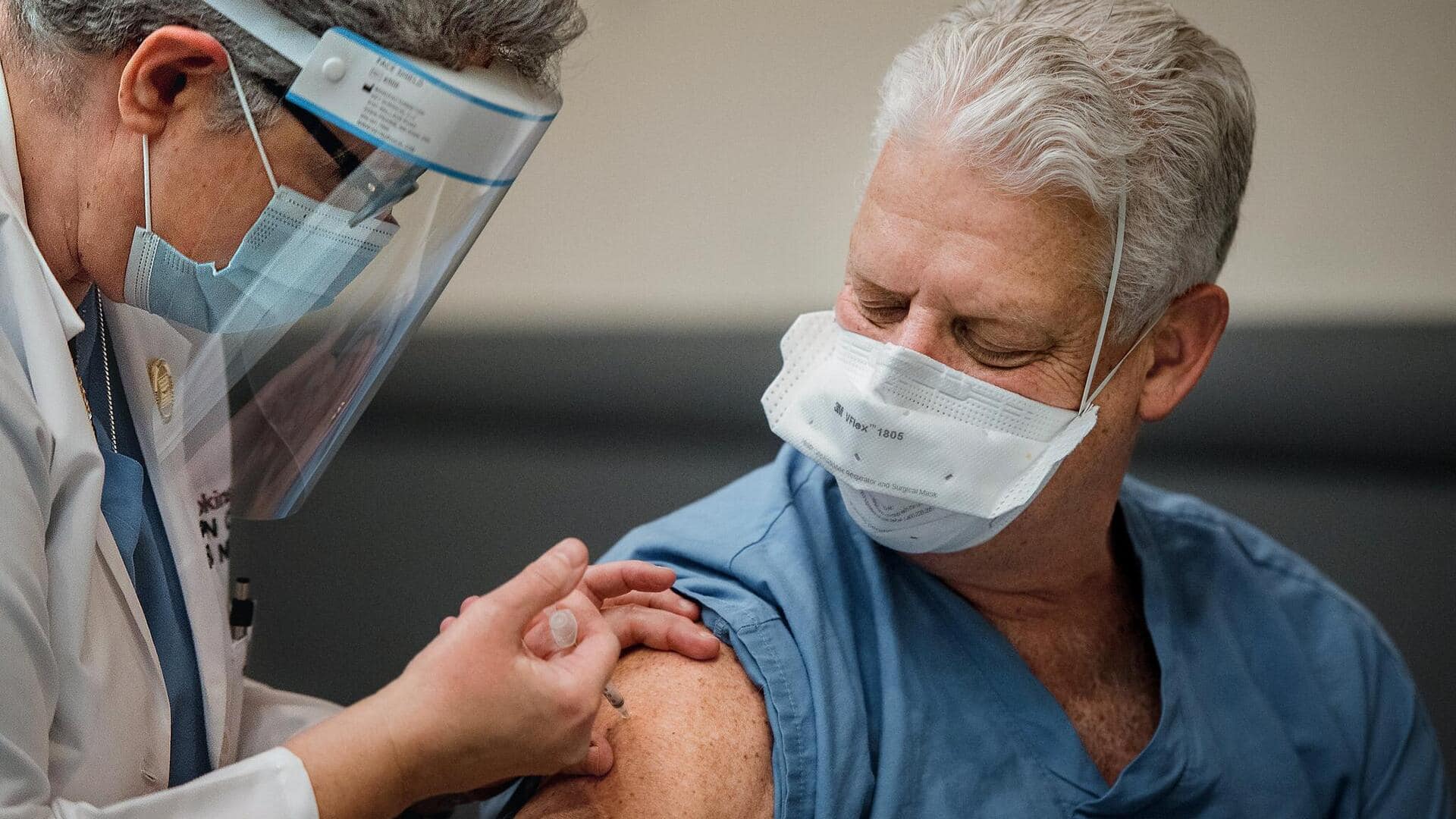
Trials of world's first lung cancer vaccine are now underway
What's the story
The world's first mRNA lung cancer vaccine, BNT116, is currently being trialed in patients across seven countries.
This medical breakthrough has the potential to save thousands of lives annually.
Lung cancer is the leading cause of cancer-related deaths worldwide, claiming approximately 1.8 million lives each year.
Survival rates are particularly low for those with advanced stages of the disease where tumors have spread extensively.
Vaccine details
BNT116: A new hope for lung cancer patients
The BNT116 vaccine, developed by BioNTech, is specifically designed to treat non-small cell lung cancer (NSCLC), the most prevalent form of the disease.
The phase 1 clinical trial of this innovative vaccine is being conducted across 34 research sites in seven countries including the UK, the US, Poland, Germany, Hungary, Turkey, and Spain.
In the UK alone, six sites are actively participating in these trials.
Trial participants
BNT116 trials involve diverse patient pool
The trials for BNT116 will involve approximately 130 patients at various stages of the disease, from early-stage before surgery or radiotherapy, to late-stage disease or recurrent cancer.
These patients will receive the vaccine alongside immunotherapy.
The UK is expected to contribute about 20 patients to this global trial. The first UK patient received his initial dose of the vaccine earlier this week.
Patient perspective
First UK patient shares experience with vaccine
Janusz Racz, a 67-year-old London resident, was the first person in the UK to receive the BNT116 vaccine.
Diagnosed with lung cancer in May, Racz began chemotherapy and radiotherapy shortly after his diagnosis.
He received six consecutive injections every five minutes over 30 minutes at the National Institute for Health Research UCLH Clinical Research Facility in UK on Tuesday.
Each injection contained different RNA strands.
Vaccine mechanism
How does the BNT116 vaccine work?
The BNT116 vaccine uses messenger RNA (mRNA), a technology also used in COVID-19 vaccines.
It works by presenting the immune system with tumor markers from NSCLC to prepare the body to fight cancer cells expressing these markers.
The goal is to enhance a person's immune response to cancer while leaving healthy cells untouched, unlike chemotherapy.
This targeted approach could potentially revolutionize lung cancer treatment strategies.
Expert opinion
A potential game-changer in cancer treatment
Professor Siow Ming Lee, a consultant medical oncologist at University College London hospitals NHS foundation trust (UCLH), which is leading the trial in the UK, expressed his excitement about this new era of mRNA-based immunotherapy clinical trials for lung cancer treatment.
He believes that this technology is the next big phase in cancer treatment due to its ability to target specific antigens in the cancer cell.